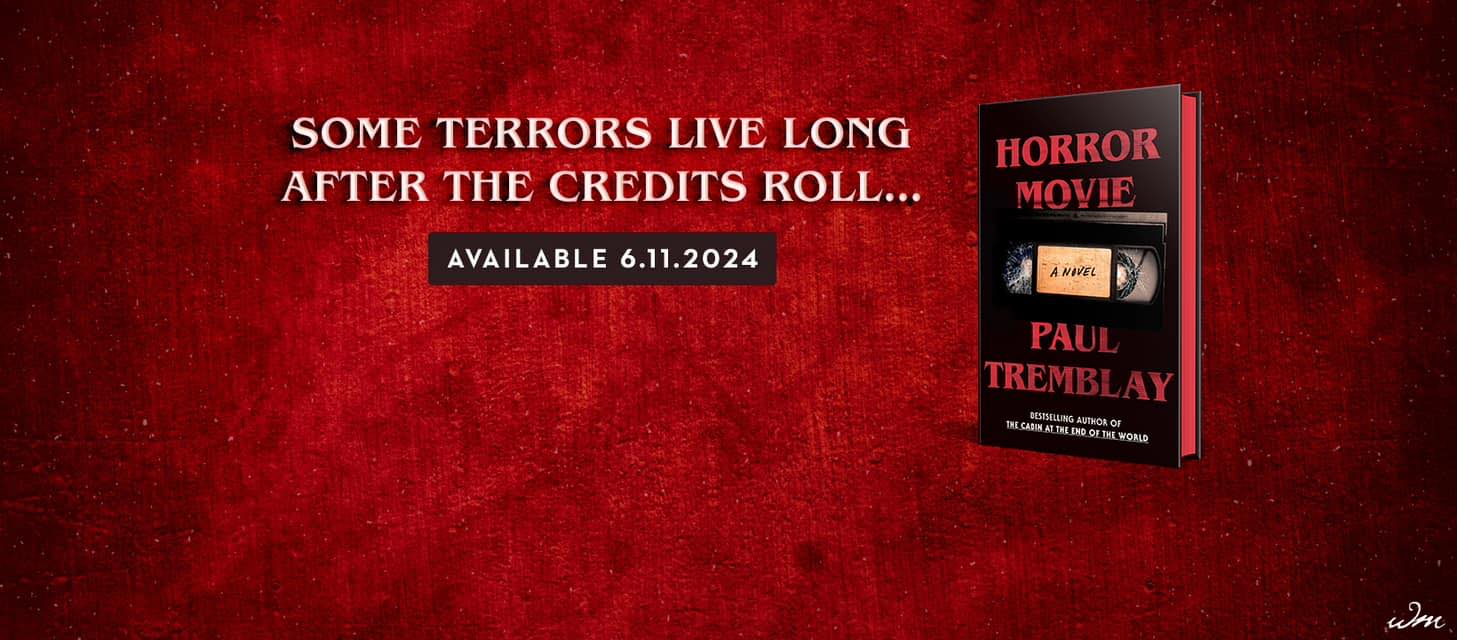February Horror Round-Up

Horror Movie - Paul Tremblay (William Morrow)
Tremblay has been on a roll the past couple of years, and yet this may be his high water mark for the decade. While I think Tremblay is best as a short story writer and his recent collection The Beast You Are contains some striking pieces, Horror Movie is as close to a perfect novel as he has had in years. The book contains three oddly congruent narratives: some friends are making an independent horror film in the 1990s, the screenplay for said horror film, and the current year, where that horror film, now infamous due to an unspoken tragedy, is being remade with a budget. The book follows our character through a silent transformation, something anyone who has been on either side of the camera can relate to, and which guides us through the tragic events of the first film’s production. While there is an intensional bit of confusion in the book’s plotting, it begins to make a profound emotional sense as we move through the text, until we reach a point where the most confounding events feel, finally, to be pitch perfect. This is a frightening book that may be one of the best ever written about horror filmmaking and one that leverages Tremblay’s expert use of absence, silence, and the unsaid to create a perennial story about the horrors we can become.
The Open Curtain - Brian Evenson (Coffee House Press)
This novel by Brian Evenson is an older offering, originally published in 2006 and republished by the non-profit publisher Coffee House Press in 2016 as part of their run of publishing new editions of many of Evenson’s classic books. The story lingers on some of the dark history that exists in the annals of Mormon mythology, but also the dual lives that many of the faithful end up leaving as they step their way away from the church. The book follows a character who (maybe) discovers a secret half brother, who joins them in their obsession with an alleged historical case of “blood atonement,” the policy of murder as justice that existed at one brief point in the Latter Day Saints lineage. The story evolves after a moment of extreme violence, and ends up as a complicated shifting narrative, alternating between past and present and the shifting identities of those who may, or may not, be driving our story. The book is partially about the duality that occurs when a person is leaving their closed religious community, but I suspect that part of the double narrative we end the book with relates just as much to the loneliness and angst that is generated when someone loses their spiritual grounding, no matter how oppressive it is now felt to be. The book may be the best example of an emerging micro-genre, “Mormon Horror,” and it brings us right into the rituals of the temple and the traditions that bind together generations, reminding us that there is horror implicit in the institutions we rely on: church, families, marriage, and love, supposedly.
Subscribe to the newsletter
All the Wrong Ideas - Jeremy Robert Johnson
While Jeremy Robert Johnson has never been just a horror writer, grouping his work under the genre heading makes more sense than just leaving him unattended on a vulnerable “literature” shelf. Johnson’s short stories meld the “bizarro” world of sometimes extreme horror, the cosmic and existential terror of post-Lovecraftian weird fiction, and his attempts to simply narrate his character’s untimely demise and suffering, all with a lurid detachment that relies heavily on the kind extraordinary narrative devices that genre publishing provides. Some of Johnson’s earlier fiction has been collected in this Coevolution Press’ “Anti-Classics” series, and this collection serves up some of his oldest, and shortest, work. All the Wrong Ideas is a real mix bag that leans somewhat into the cosmic model, but with few references to established genre mythos or monsters. Instead you get these often strange blasts of storytelling: a kidnapping victim who chooses to denounce their rescue, a failing alcoholic who watches as his wife and kid are mutated by an alien virus, a corpse actor who goes full method, and a weekend-raver who takes an experimental hallucinogen manufactured by neo-Nazis as a way of punishing race traitors. The book has incredible range, with many stories reading scarcely longer than a single page, and a couple that exceed fifty. This probably won’t reach a huge audience, but I’m not sure it needs to, and it is a fun exercise in breaking the conventional bonds of fiction and taking on some outlandish characters.
Best Horror of the Year: Volume 15 - Ed. Ellen Datlow (Night Shade Books)
While Ellen Datlow’s yearly line-up is always amongst the best, this collection has just slightly fewer stand-out selections than the last couple of years. This should not dissuade anyone from picking it up since it continues to be the best survey of what is happening in literary horror and has some truly fabulous stories, and the “hit and miss” nature in much of horror is due to taste rather than quality. Still, there are some phenomenal offerings here, including “New Fox Smell” by Livia Llewellyn, “Bb Minor, or The Suicide Choir: An Oral History” by Gemma Files, “Enough for Hunger and Enough for Hate” by John Langan, and “The Collection” by Charlie Hughes, amongst a slew of other worthy contributions. This book was set to be published last year and was delayed a few weeks into 2024, so it will be curious to see if we end up with two “best horror” anthologies this year.